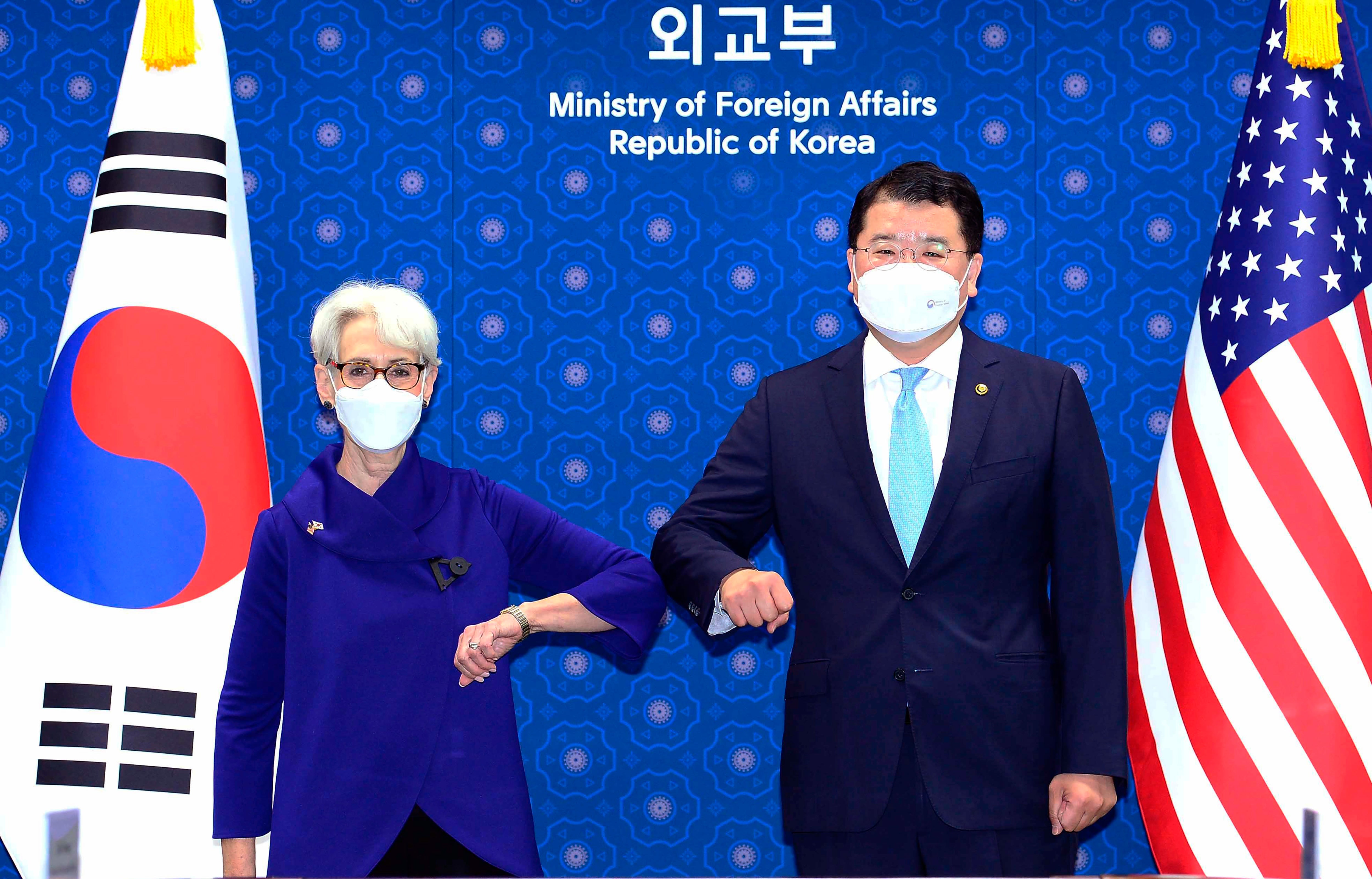US diplomat worried about pandemic, food supply in N Korea
America’s No. 2 diplomat has expressed sympathy for North Koreans facing hardships and food shortage linked to the pandemic, and renewed calls for the North to return to talks over its nuclear program

Your support helps us to tell the story
From reproductive rights to climate change to Big Tech, The Independent is on the ground when the story is developing. Whether it's investigating the financials of Elon Musk's pro-Trump PAC or producing our latest documentary, 'The A Word', which shines a light on the American women fighting for reproductive rights, we know how important it is to parse out the facts from the messaging.
At such a critical moment in US history, we need reporters on the ground. Your donation allows us to keep sending journalists to speak to both sides of the story.
The Independent is trusted by Americans across the entire political spectrum. And unlike many other quality news outlets, we choose not to lock Americans out of our reporting and analysis with paywalls. We believe quality journalism should be available to everyone, paid for by those who can afford it.
Your support makes all the difference.America’s No. 2 diplomat on Friday expressed sympathy for North Koreans facing hardships and food shortages linked to the pandemic, and renewed calls for the North to return to talks over its nuclear program.
North Korean leader Kim Jong Un has recently warned of a “tense” food situation and admitted his country faces “the worst-ever” crisis. But his government has steadfastly insisted it won’t rejoin the talks unless Washington drops its hostility.
“We all feel for the people of the DPRK, who are indeed facing all the most difficult circumstances given the pandemic, and what it means as well for their food security,” U.S. Deputy Secretary of State Wendy Sherman told reporters in Seoul, referring to North Korea’s official name, the Democratic People’s Republic of Korea.
“We only hope for a better outcome for the people of the DPRK,” she said.
Sherman spoke after meeting South Korean officials, during which the two sides reaffirmed that they’ll continue diplomatic efforts to convince North Korea to return to the nuclear talks.
“We are looking forward to a reliable, predictable, constructive way forward with the DPRK,” Sherman said. “We have offered to sit and dialogue with the North Koreans, and we are waiting to hear from them.”
The talks between Washington and Pyongyang have made little headway since early 2019, when a second summit between Kim and then-President Donald Trump collapsed due to wrangling over U.S.-led economic sanctions. Kim has since threatened to bolster his nuclear arsenal and build more sophisticated weapons unless the Americans lift their hostile policy, an apparent reference to the sanctions.
Some experts say North Korea may be compelled to reach out to the United States if its economic difficulties worsen. Outside monitoring groups haven’t reported any signs of mass starvation or social chaos in North Korea. In recent speeches, Kim has called for his 26 million people to brace for prolonged COVID-19 restrictions, indicating the country wasn't ready to reopen its borders despite the massive toll on its economy.
After Seoul, Sherman is to travel on to Mongolia and then China, the North’s last major ally and aid benefactor. She’ll be the highest-ranking U.S. official to visit China since President Joe Biden was inaugurated in January.
During her visit to the northeastern Chinese city of Tianjin on Sunday, Sherman said she’ll discuss North Korea with Chinese officials, saying Beijing “certainly has interests and thought” on it.
“The Biden administration has described our relationships with China as obviously a complicated one. It has aspects that are competitive, it has aspects where it is challenging, and aspects where we can cooperate,” she said. “And thinking together about bringing the complete denuclearization of the Korean Peninsula is certainly an area for cooperation.”